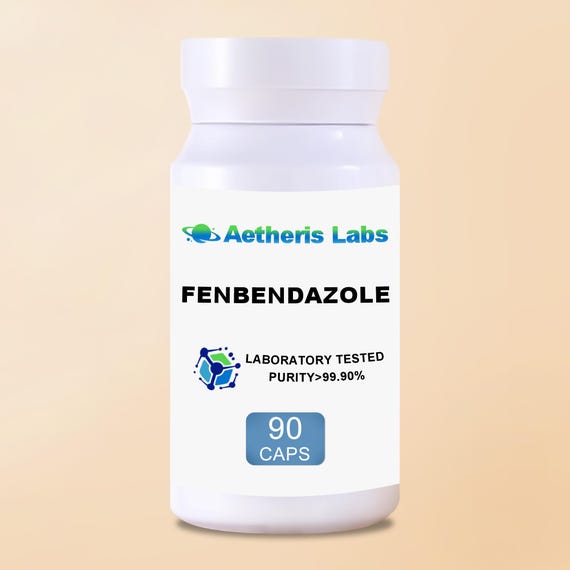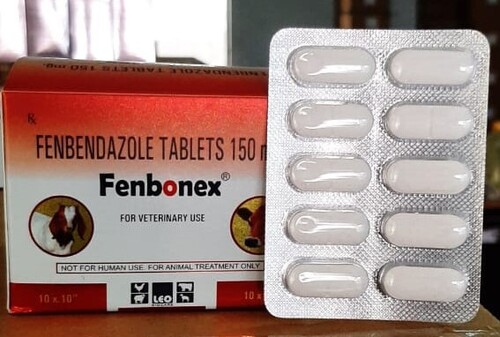fenbendazole capsules: FAQs Answered
Wiki Article
Recognizing the Benefits and Uses of Fenbendazole in Vet Medication
Fenbendazole has actually developed itself as an essential anthelmintic in vet medication. Its ability to target different parasitic infections makes it a valuable tool for vets. The drug's system interferes with crucial cellular procedures in parasites, bring about effective treatment results. Its safety and security account varies between species, requiring mindful consideration in its use (fenbendazole 222). Comprehending these dynamics can shed light on fenbendazole's more comprehensive effects in vet care and recurring research study right into its possible past standard applicationsDevice of Action of Fenbendazole

Usual Parasitical Infections Dealt With With Fenbendazole
A range of parasitical infections are properly treated with fenbendazole, making it a versatile choice in veterinary medication. This anthelmintic agent is especially effective against nematodes, consisting of roundworms and hookworms, which frequently influence canines and cats. It is also made use of for the treatment of cestodes, such as tapeworms, supplying a wide spectrum of action versus both sorts of intestinal tract parasites. Furthermore, fenbendazole is beneficial in taking care of infections brought on by protozoa, particularly Giardia, which can cause intestinal distress in pets. Its efficacy encompasses treating certain lungworms in pooches and felines, dealing with respiratory system health and wellness concerns connected to these bloodsuckers. In general, fenbendazole's capability to target several parasitical species makes it a valuable device in veterinary practice, ensuring the wellness and well-being of family pets impacted by these usual infections.Security and Effectiveness in Various Pet Species
The safety and efficacy of fenbendazole vary amongst various animal varieties, underscoring the relevance of species-specific considerations in veterinary medication. In dogs, fenbendazole is typically well-tolerated and reliable versus a variety of stomach bloodsuckers, consisting of roundworms and hookworms. For felines, however, its usage is much less typical and might need mindful application because of potential damaging reactions.In livestock, such as livestock and sheep, fenbendazole shows performance versus various endoparasites, adding to improved health and wellness and productivity. The pharmacokinetics and possible side results can differ significantly in between species, demanding careful 222 mg assessment by veterinarians.
Equines likewise respond favorably to fenbendazole, particularly for treating strongyles and ascarids, though dosage and management routes have to be customized to their one-of-a-kind physiology. Subsequently, recognizing these distinctions is essential for maximizing treatment outcomes and guaranteeing animal well-being throughout diverse species.
Management and Dose Standards
Proper management and dose standards are vital for taking full advantage of the restorative effects of fenbendazole while reducing potential negative effects. The dose usually varies relying on the species being dealt with, the details condition, and the solution of fenbendazole used. fenbendazole 444. For pet dogs and cats, a typical dosage is 50 mg/kg body weight, provided as soon as daily for 3 consecutive days, however vets may adjust this based on specific health and wellness evaluationsIt is necessary to administer fenbendazole with food to improve absorption and reduce stomach distress. The medication is readily available in different types, consisting of granules and paste, allowing for flexible management choices. Checking the pet's action during and after treatment is a good idea to validate effectiveness and safety and security. In addition, vet support is crucial to figure out the proper duration of treatment based upon the sort of parasitic infection being dealt with, assuring excellent outcomes for the animal's wellness.
Future Point Of Views and Study on Fenbendazole
Research study on fenbendazole continues to develop, focusing on its possible applications beyond conventional antiparasitic uses. Current research studies have discovered its effectiveness in dealing with numerous forms of cancer, particularly in veterinary oncology. Preliminary data suggest that fenbendazole may inhibit the development of lump cells and boost the effects of other chemotherapeutic representatives.Researchers are investigating its role in taking care of intestinal disorders in animals, highlighting its anti-inflammatory residential or commercial properties. The flexibility of Visit This Link fenbendazole for various types questions concerning its safety and security profiles and suitable dosing routines in diverse populations.
As interest grows, there is a demand for detailed professional tests to develop evidence-based guidelines for these unique applications. Future research might additionally examine the devices behind fenbendazole's effects, possibly leading the way for ingenious healing methods in veterinary medicine. The recurring expedition of fenbendazole could greatly improve therapy alternatives for various vet conditions.

Often Asked Inquiries
Is Fenbendazole Safe for Pregnant Animals?
The safety and security of fenbendazole for expectant animals continues to be unsure. While some researches recommend marginal threat, vets generally recommend caution and typically encourage versus its use while pregnant unless the advantages clearly exceed potential dangers.Can Fenbendazole Be Made Use Of in Animals?
Fenbendazole is generally made use of in animals to treat different parasitic infections. fenbendazole capsules. Its efficacy against gastrointestinal worms makes it an important anthelmintic, adding to boosted wellness and productivity in animals elevated for food and fiberWhat Are the Side Results of Fenbendazole?

The adverse effects of fenbendazole might consist of gastrointestinal disruptions, lethargy, and allergies. In rare instances, extra serious reactions might happen, demanding careful monitoring and appointment with a vet during treatment.
How Does Fenbendazole Compare to Various Other Dewormers?
Fenbendazole provides broad-spectrum effectiveness versus numerous bloodsuckers, often contrasting positively to various other dewormers. Its one-of-a-kind system targets different try this website life stages, making it effective, while normally offering a beneficial safety and security account compared to choices available on the market.Can Fenbendazole Be Used for Treating Cancer Cells in Animals?
The possibility of fenbendazole in treating cancer in pet dogs has garnered rate of interest. Preliminary research studies recommend it may inhibit cancer cells cell development, however further study is required to confirm its efficiency and safety and security in vet oncology.Report this wiki page